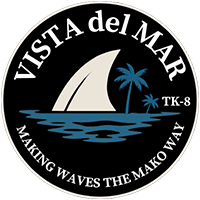Ethics Policy
ACADEMIC INTEGRITY
Ethics is defined as moral principles or practice. CUSD students, teachers, administrators and parents are encouraged to base relationships on a fundamental notion of trust. With trust comes the ability to establish productive staff-student-parent relationships. Therefore, academic dishonesty (“cheating”), in any form (including students working together in pairs or groups unless specifically directed to do so by the teacher), will not be tolerated. Cheating undermines the academic process, destroys students’ integrity, and shatters the trust necessary for productive relationships. Teachers are often required to indicate violations of Academic Integrity on applications and recommendation forms.
Cheating may include but is not limited to the following:
- Copying another student’s homework
- Copying another student’s answers on a test
- Using an unauthorized prompt sheet
- Using unauthorized technology (including a calculator) during a test or quiz
- Making homework available to another student so they may copy the answers
- Plagiarizing another author’s work
- Cutting and pasting passages from the Internet into an assignment without notation for the author
- Forged notes (student signing his or her parents’ name)
Consequences for breaking the Ethics Policy are cumulative for all classes.
